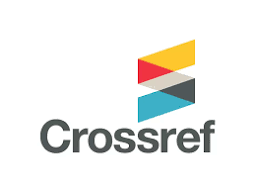Cerebrovascular Accidents in Diabetic Patients Can HBA1c Predict Early Outcome and Mortality
Keywords:
Cerebrovascular accident, stroke, diabetes, Hemoglobin A1C, HBA1CAbstract
Background: Stroke is the second largest cause of death in adults and more than 20% of diabetic patients are affected. Hyperglycaemia during the period a person suffers from stroke is reported to be associated with poor outcome and survival.
Objective: To analyse the predictive power of glycated haemoglobin (HBA1C) for early functional outcome in terms of modified Rankin Score and early overall survival.
Methods: Prospective observational study conducted at the department of Internal Medicine between July 2015 and December 2016. Diabetic patients who presented with stroke between 45 and 70 years of age were included. All patients were investigated with random blood glucose levels and HBA1C at the time of admission. A receiver operating characteristic (ROC) curve analysis was performed to determine the predictive power of HBA1C on early outcome in terms of modified Rankin Score at discharge and early overall survival.
Results: Of the 146 patients included in this study, there were 48 (32.9%) males and 98 967.1%) females with a mean age of 56.88 ± 4.67 years (range: 47-69).69 (47.3%) cases had their random blood sugar (RBS) of more than 200 mg/dL. The mean HBA1C at the time of admission was 8.17 ± 1.64 %.The mortality rate was 21.2% (n = 31) and mean mRS at the time of discharge was 3.75 ± 1.56.A ROC curve was obtained utilising the HBA1C levels against the outcome categorised as favourable (mRS ≤3 at discharge) or unfavourable (mRS ≥3 at discharge). The ROC curve was significant (p <0.0001) with an area under the curve (AUC) of 95% (95% confidence interval (CI) 0.92 to 0.99). At the cut-off limit of 7.5% of HBA1C, the sensitivity was 91.9% and specificity of 91.7%.
Conclusion: The glycated haemoglobin level is a strong predictor of functional outcome as well as in-hospital mortality. It may be used as a prognostic tool to direct intensive therapies in diabetic stroke patients.
Downloads
Published
Issue
Section
License
Copyright (c) 2019 Anwar Ul Haque

This work is licensed under a Creative Commons Attribution-NonCommercial 4.0 International License.
Readers may “Share-copy and redistribute the material in any medium or format” and “Adapt-remix, transform, and build upon the material”. The readers must give appropriate credit to the source of the material and indicate if changes were made to the material. Readers may not use the material for commercial purpose. The readers may not apply legal terms or technological measures that legally restrict others from doing anything the license permits.


